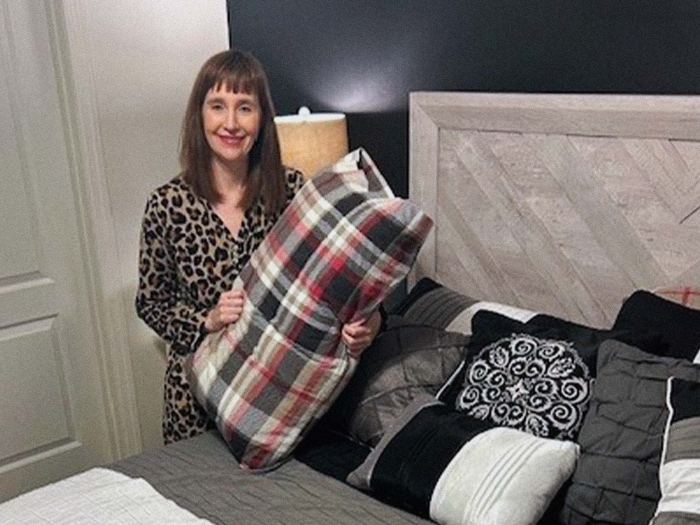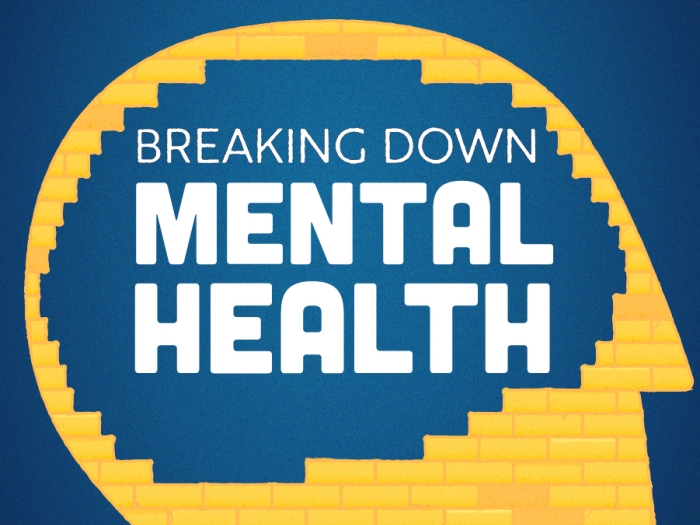A sleep psychologist says you should reconsider stocking up on CBD products for catching some zzz’s.
11:30 AM
Author |

Cannabidiol (CBD) oil seems to be all over the place, used as treatment for anxiety, chronic pain, acne and even infused in some foods and drinks. It's readily available in various doses and forms over-the-counter. It's natural to wonder what this mystical compound of marijuana is and what it does in the body.
You might be thinking, "Wait, marijuana? Doesn't that make you high?" But let's set the record straight: unlike CBD's counterpart delta-9-tetrahydrocannabinol (THC), CBD is a non-psychoactive compound, meaning it doesn't alter your cognitive state.
Similar to THC though, CBD can help you relax and people are wondering if it will help them finally get some good shut eye.
"It's a tricky question to answer," says Deirdre Conroy, Ph.D., clinical director of the Behavioral Sleep Medicine Clinic at Michigan Medicine. "There have been few studies on CBD and its effect on sleep, and those published have few participants with differing doses and forms of CBD administered."
However, many of these studies suggest there could be some benefit to using CBD as a sleep aid, and it's worth researching. "For example, there's evidence that CBD can be helpful in managing anxiety. If someone's anxiety is creating their sleeping problem, a CBD product may benefit them," Conroy says.
We're looking for answers we just don't have yet. The products are outpacing the science.Deirdre Conroy, Ph.D.
But reaping the rewards of CBD is a slippery slope since much of its long term safety or efficacy is still unknown. One study showed taking less than 160 mg of CBD oil may actually promote wakefulness. While higher doses can promote sleep, the FDA has approved only one CBD product, a prescription drug to treat two rare, severe forms of epilepsy. Because other CBD products aren't regulated, you might not know what you're really getting.
"This compound is used in various forms and their doses may differ, so you might not know how much CBD you're actually using," Conroy says. Regular usage of high dose CBD could harm you before you become aware of it, according to the FDA. It can cause liver injury and affect how other drugs are metabolized, causing serious side effects. Similarly, when used with alcohol or other central nervous system depressants, the increased risk of sedation and drowsiness can lead to injuries.
Like Podcasts? Add the Michigan Medicine News Break to your Alexa-enabled device or subscribe for daily updates on iTunes, Google Play and Stitcher.
"Non-pharmacological interventions have long-term, long-standing data that proves their safety and efficacy," Conroy says. "I know CBD oil for the treatment of sleep disorders is intriguing, but we're looking for answers we just don't have yet. The products are outpacing the science."
Setting yourself up for sleep
Melatonin for sleep, like CBD, needs more research to unmask its benefits and harms. "We secrete melatonin naturally as our bodies prepare for bed," Conroy says. "I believe in harnessing what you already have."
Until we have more answers about CBD, there's a plethora of behavioral strategies that promote better sleep, including:
-
Allowing yourself time to wind down before bed in a dark setting without bright screens. If you need to look at a screen, make sure you use a brightness filter.
-
Having outlets for managing stress and anxiety, like journaling or seeking professional help with a therapist if it's more serious.
-
Training your body to follow a regular sleep and wake cycle if you don't already have a routine.
SEE ALSO: Obey These 10 'Sleep Commandments' for Healthful Zzz's
If you're having trouble sleeping on a regular basis, you may have an underlying sleep disorder that a sleep specialist could help diagnose and manage.
If sleep problems persist, Conroy recommends seeking help from a sleep medicine specialist. "We might recommend undergoing a sleep study or offer other therapies to improve your quality of life," Conroy says. "This also opens dialogue between you and a medical professional about what kind of treatment option you're looking for, what your sleep goals are and what your expectations from a sleep aid are."

Explore a variety of healthcare news & stories by visiting the Health Lab home page for more articles.

Department of Communication at Michigan Medicine
Want top health & research news weekly? Sign up for Health Lab’s newsletters today!





